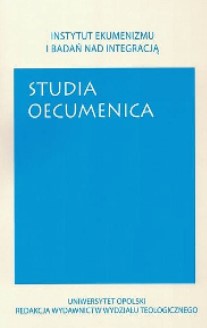Exploring basic hope as a mediator between attitudes towards religion and psychological well-being among Anglicans
Exploring basic hope as a mediator between attitudes towards religion and psychological well-being among Anglicans
Author(s): Dariusz KrokSubject(s): Christian Theology and Religion, History of Church(es), Religion and science , Psychology of Self, Behaviorism, Other Christian Denominations
Published by: Uniwersytet Opolski
Keywords: attitudes to religion; basic hope; psychological well-being; Anglicanism;
Summary/Abstract: The current study examines the mediating role of basic hope in the relationship of attitudes towards religion with psychological well-being in a sample of Anglicans. Because previous research has indicated close associations among religiosity, hope and well-being, the aforementioned assumption is highly plausible. A total of 176 participants (89 women and 87 men) took part in this study. All were members of the Church of England who completed three questionnaires: the Post-Critical Belief Scale (PCBS), the Psychological Well-Being (PWB) and the Basic Hope Inventory (BHI-12). The results demonstrated that all four attitudes towards religion were associated with basic hope: orthodoxy and second naiveté were positively related to basic hope, while external critique and relativism were negatively related. In addition, basic hope was positively associated with psychological well-being. The main finding showed that basic hope turned out to mediate the relationships between the four attitudes towards religion and psychological well-being among Anglicans. Taken together, the findings highlight the important role of hope, which seems vital to the development of people’s religious beliefs and well-being
Journal: Studia Oecumenica
- Issue Year: 2022
- Issue No: 22
- Page Range: 219-236
- Page Count: 18
- Language: English

